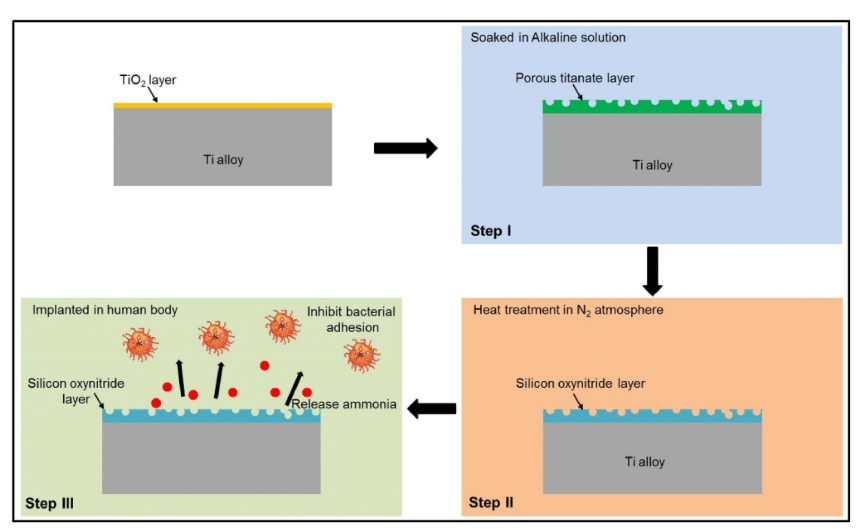DOI number:10.1007/s44174-023-00067-y
Journal:Biomedical materials and devices
Abstract:Surface nitriding has been widely used to improve the surface physicochemical properties of Ti alloys. However, the currently utilized surface nitriding methods, such as laser nitriding, typically require expensive and complicated instruments, which makes surface nitriding a less cost-effective process. Meanwhile, the antibacterial properties of surface-nitrided Ti alloy implants have not been evaluated. Thereafter, in this study, we were aiming to develop an effective, simple, and cost-effective surface nitriding strategy to enhance the antimicrobial properties of Ti alloy implants. The surface nitriding strategy was realized by wet-chemical etching and thermal treatment at controlled conditions. Results showed that the above surface modification treatments exerted significant effects on the phase composition and morphology of the newly formed phases on the surface of Ti samples. Crystalline TiN and TiO2 formed after treatments. Meanwhile, amorphous nitrides and oxynitride were also presented on the sample surfaces. The surface-modified Ti samples showed a bacterial inhibition effect compared with the non-treated Ti ones, and the bacterial inhibition effect was attributed to the released ammonia species from the surface of Ti samples. The surface modification strategy shows promise to improve the bacteriostatic property of Ti implants in dental and orthopedic fields.
Co-author:Karthik Rajaseka, Ioannis Katsaros, Yihong Liu, Helen Wang, Hakan Engqvist
First Author:Le Fu
Correspondence Author:Wei Xia
Translation or Not:no
Links to published journals:https://link.springer.com/article/10.1007/s44174-023-00067-y


